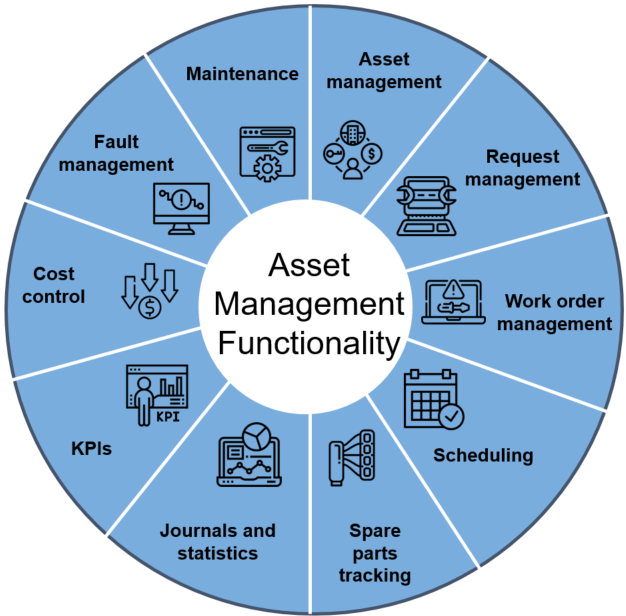Incorporating AI-based asset management into Pixie CRM systems offers significant benefits for businesses, including enhanced asset visibility, predictive maintenance, optimal resource allocation, and cost reduction. By leveraging AI algorithms, businesses can streamline asset tracking, optimize maintenance processes, and improve overall operational efficiency. AI-based asset management in Pixie CRM systems empowers businesses to maximize asset value, reduce downtime, and achieve long-term asset management success.
Efficient management of assets is crucial for the success and growth of any business. Pixie Customer Relationship Management (CRM) systems equipped with Artificial Intelligence (AI) technology offer valuable tools for asset management. AI-based asset management capabilities within CRM systems enable businesses to streamline asset tracking, optimize maintenance processes, enhance productivity, and improve overall operational efficiency.

Enhanced Asset Visibility: AI-based asset management in CRM systems provides businesses with enhanced visibility into their assets. By integrating AI algorithms, businesses can track and monitor assets in real-time, gaining insights into asset location, usage, and status. This visibility allows businesses to optimize asset utilization, minimize loss, and ensure timely maintenance. AI-driven asset visibility improves operational efficiency, reduces downtime, and enhances customer satisfaction.
Predictive Maintenance: AI-powered CRM systems enable businesses to implement predictive maintenance strategies. By analyzing asset data, AI algorithms can detect patterns, identify early signs of equipment failure, and predict maintenance needs. This proactive approach to maintenance helps businesses avoid unexpected breakdowns, reduce downtime, and optimize maintenance schedules. AI-driven predictive maintenance improves asset reliability, extends asset lifespan, and reduces maintenance costs.
Optimal Resource Allocation: AI-based asset management in CRM systems helps businesses optimize resource allocation. By analyzing asset usage data, AI algorithms can identify underutilized assets, recommend asset sharing, and optimize resource allocation. This optimization ensures that assets are utilized efficiently, minimizes unnecessary purchases, and reduces overall costs. AI-driven resource allocation improves operational efficiency, enhances cost-effectiveness, and supports sustainable business practices.
Improved Asset Lifecycle Management: AI-powered CRM systems facilitate comprehensive asset lifecycle management. By integrating AI algorithms, businesses can track assets from acquisition to disposal, capturing crucial information such as maintenance history, warranty details, and depreciation. This centralized asset lifecycle management enables businesses to make informed decisions regarding asset replacement, retirement, and upgrades. AI-driven asset lifecycle management improves asset planning, maximizes ROI, and ensures regulatory compliance.
Risk Mitigation: AI-based asset management in CRM systems helps businesses mitigate risks associated with asset management. AI algorithms can analyze asset data, identify potential risks, and recommend preventive measures. This risk analysis covers aspects such as compliance, safety, and environmental concerns. AI-driven risk mitigation enhances asset security, reduces liability risks, and protects the reputation of the organization.
Real-time Reporting and Analytics: AI-powered CRM systems provide real-time reporting and analytics capabilities for asset management. Businesses can access dashboards and reports that offer comprehensive insights into key asset metrics, performance indicators, and cost analysis. Real-time reporting and analytics enable businesses to monitor asset performance, identify opportunities for improvement, and make data-driven decisions. AI-driven reporting and analytics enhance visibility, support strategic asset planning, and optimize operational efficiency.
Inventory Management Optimization: AI-based asset management in CRM systems optimize inventory management processes. By analyzing asset usage, demand patterns, and supply chain data, AI algorithms can forecast inventory needs, recommend reorder points, and optimize inventory levels. This optimization reduces inventory carrying costs, prevents stockouts, and improves overall supply chain efficiency. AI-driven inventory management optimization improves cash flow, reduces waste, and enhances customer satisfaction.
Compliance and Regulatory Compliance: AI-powered CRM systems facilitate compliance and regulatory compliance in asset management. AI algorithms can analyze asset data, track maintenance records, and identify compliance requirements. This ensures that assets meet safety standards, regulatory obligations, and industry-specific requirements. AI-driven compliance and regulatory compliance enhance asset reliability, reduce legal risks, and protect the organization's reputation.
Cost Reduction: AI-based asset management in CRM systems helps businesses reduce costs associated with asset management. AI algorithms can identify inefficiencies, recommend process improvements, and optimize asset-related expenses. By minimizing unnecessary maintenance, optimizing resource allocation, and extending asset lifespan, businesses can significantly reduce operational costs. AI-driven cost reduction improves profitability, supports financial stability, and provides a competitive advantage.
